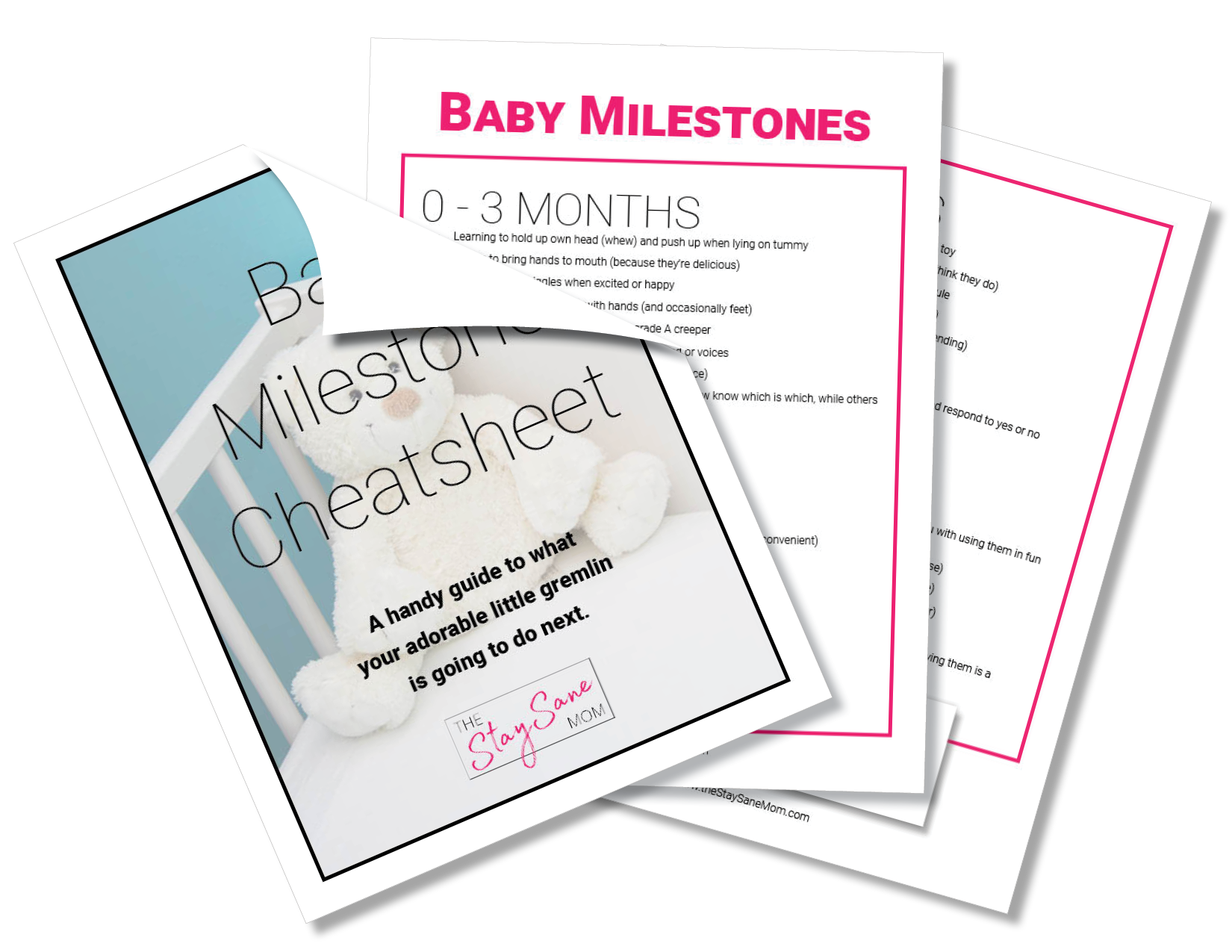6 Tips for Breastfeeding a Baby With a Lip/Tongue Tie

6 Tips for Breastfeeding a Baby With a Lip/Tongue Tie
Tips for moms who need help nursing their babies who have a lip or tongue tie.
Written by Shelby Allan | See Comments | Updated 03/10/2023
Want to cut to the chase?
Baby Milestone Cheatsheet

6 Tips for Breastfeeding a Baby With a Lip/Tongue Tie
This post contains some affiliate links for your convenience. Click here to read my full disclosure policy.
Breastfeeding a baby with a lip or tongue tie can be a very difficult task not only physically but mentally as well. Many people don’t know what a lip tie is let alone how to look for it or how to fix it. According to the American Academy Pediatrics about 10% of the population has some sort of tongue tie. Infants with a lip/tongue tie will often have problems with feeding and speech as they get older.
What is a Tongue Tie?
Stanford Health defines a tongue tie as when the tissue (frenulum) under the tongue that attaches to the bottom of the mouth is too tight. This makes it hard for the baby to get their tongue into the correct position while breastfeeding and inhibits them from creating the suction needed to pull milk from the beast into their mouths.
What is a Lip Tie?
A lip tie is when the skin or frenum that attaches the lip to the upper gum is tight and tethered. Lip ties make it difficult for the baby to open their mouth fully to get a good latch. The pictures below are actually of my own baby who had a lip and tongue tie. As you can see the tissue that attaches is very tight and the movement of her tongue and upper lip is very restricted.
Lip Tie Tongue Tie
What to Do
-
Know the signs
Infants who have a lip or tongue tie will commonly have trouble latching onto the breast. Make sure to check the baby's mouth to see that his or her lips are flanged and are not tucked in. It is also important to note if it is painful while breastfeeding. This is another sign that something isn’t quite right. The sign that was most noticeable for me was that my baby was extremely sleepy after only nursing for 5-10 minutes. After discussing with her pediatrician we decided the reason she was so sleepy was because she was working 10x harder to get the milk out. So she would get just enough milk to satisfy her for a while before completely exhausting herself.
-
Talk to your Doctor or Lactation Consultant
Make sure to bring up your concerns with your child's provider or your lactation consultant. They will be able to do an examination to confirm if your child has a tongue tie and then point you in the right direction for treatment. Remember, you are your child’s advocate, if you don’t think something is right, talk to your provider.
-
Try Different Positions while Nursing
Try switching up the position you use while nursing. A great option for babies with a tongue tie is the football hold. This is where you place your baby next to your side with their feet toward your back. Then tuck them in like you're carrying a football. This allows their mouth to open wide overtop of the breast.
-
Use a Nipple Shield
A nipple shield gives the baby a little more of a harder surface to grab onto and allows them to create the suction they need to express milk.
-
Exclusively pump and give your baby milk from a bottle
By pumping and giving the milk from a bottle it often makes it easier for babies to get the milk. They don’t have to work quite as hard. This was key when I was struggling with breastfeeding my tongue/lip tied baby. We both felt frustrated when nursing so the bottle was a great option to give us both a physical and mental break.
Treatment Options
There are a few different things that you can do if your child has a lip or tongue tie. They include speech therapy to help strengthen the muscles around the mouth and cheeks. You may also be referred to a pediatric dentist or an Ear, Nose, and Throat specialist. Depending on where you go they may recommend that the lip/tongue tie is released either by laser technology or by using local anesthetic, a scalpel or scissors. Aftercare will be important after either of these producers so make sure you understand the aftercare instructions.
If you think your baby has a lip/tongue tie make sure to bring it up to your doctor or lactation consultant. Waiting until your baby is older to diagnose often makes treatment more difficult and decreases the chances of your baby having trouble with speech and eating solid foods when they are older.
For more information on great products for breastfeeding check out Breastfeeding Must Haves: Essentials for Breastfeeding
Start Your Next Step
Baby Milestone Cheatsheet

Get Sanity, Delivered to Your Inbox.
Care to Share?
About the Author

Shelby Allan
Contributor
My name is Shelby Allan, I am an RN, mother to 4 and a wife to a busy farmer/cattle rancher. We live on a farm in Central Nebraska. Educating people/patients has always been a passion of mine, so that's why I created my freelance writing business called “Cultivating Words” I love to share evidence-based research to moms, wives, and nurses alike.






-Budget.jpg)